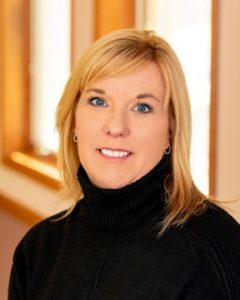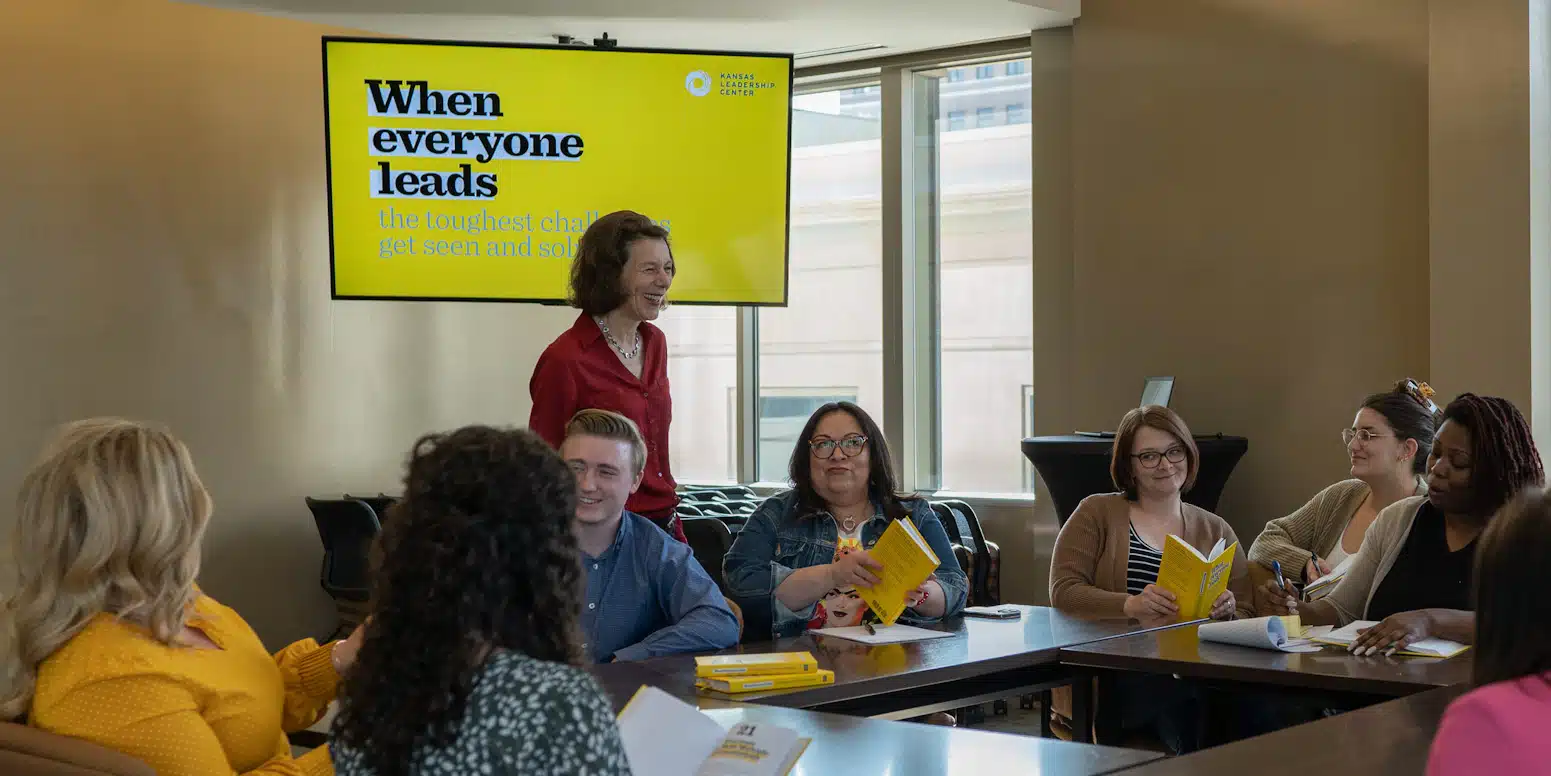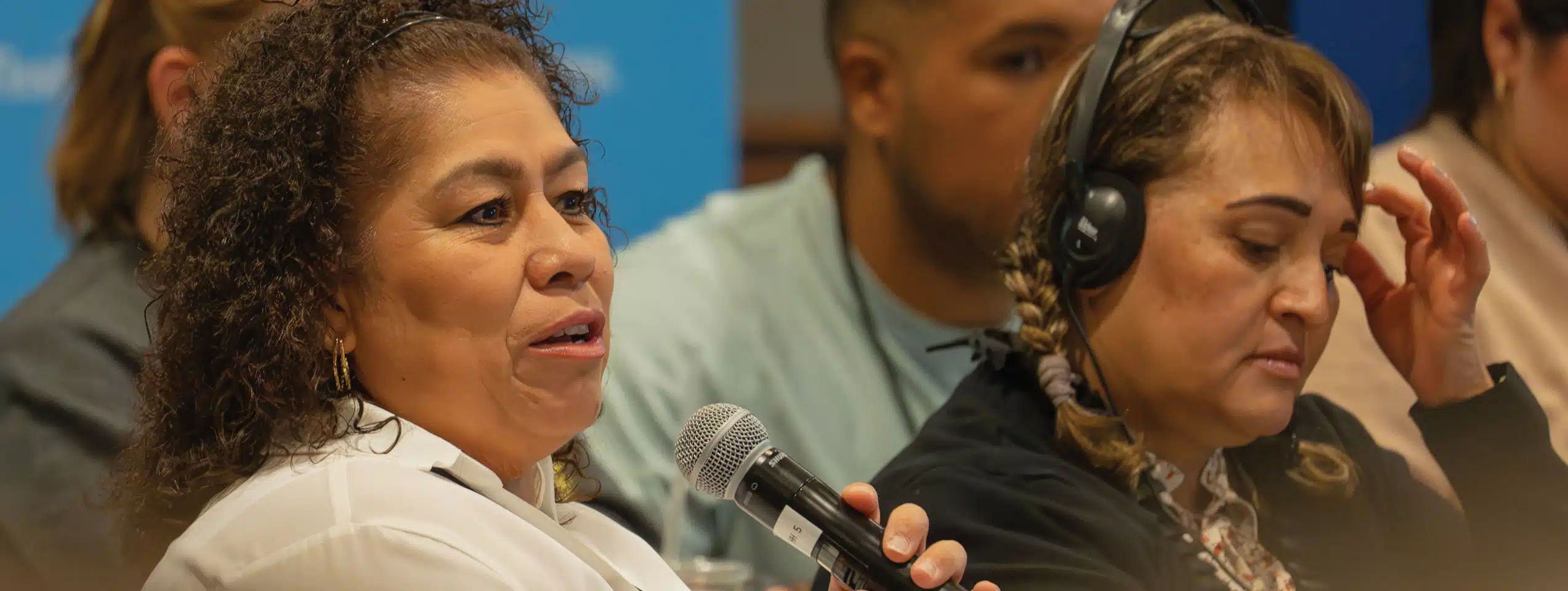The month of September was pure misery for Michele VanWinkle, isolated at home and wracked by the severe symptoms of COVID-19.
“There were days I couldn’t shower by myself. There were days I couldn’t walk down the hallway from my bed to the couch,” VanWinkle said. Months later, effects of the virus linger: fatigue, dizziness, brain fog and a distorted sense of smell.
VanWinkle, a social worker and community-based services coordinator at Four County Mental Health Center in Independence, is sharing her story as part of a public awareness campaign to persuade residents of southeast Kansas that the virus is real – and serious.

Michele VanWinkle
The fact that COVID is not to be trifled with is an important message in all parts of the state. But it is particularly vital in the southeast, where an unhealthy population is particularly at risk of contracting severe cases of the virus.
In the nationwide county health rankings released annually by the Robert Wood Johnson Foundation, southeast Kansas traditionally fares poorly using an index that covers everything from tobacco use to air and water quality. Income and education are also factors.
In color-coded maps of the state’s 105 counties, illustrating performance ranges, the southeast corner stands out as an Achilles’ heel. At least a dozen counties there rank in the lower third in healthy outcomes. Among them: Montgomery (101), Wilson (90) and Chautauqua (102).
Coal country
Living in some of the poorest counties in the state, where the Ozark hills and hardwood forests meet prairie, locals consider themselves hardscrabble and tough.
The region is known as the Little Balkans because so many of the early residents emigrated from that part of southeastern Europe.
Many came to work in the coal fields, leaving behind a hollowed out industrial legacy when the mining industry declined in the decades after World War II. Even before the last gasp of industry in the 1970s, manual labor jobs with picks and shovels had already given way to monster machines that were much more efficient at hauling minerals to the surface.
When the Kansas Leadership Center launched the Kansas Beats the Virus campaign last month, in partnership with the state of Kansas, leaders with Four County Mental Health Center and other organizations seized on the initiative to help this vulnerable corner of the state.
The Kansas Beats the Virus campaign convened more than 850 community meetings in about four weeks, aimed at generating grassroots ideas to stop the spread of the coronavirus. KLC awarded nearly $800,000 in grants to help get these solutions up and running.
Keep it simple
The Kansas Beats the Virus convenings have illustrated that ingenuity need not be complicated or costly, as demonstrated by some of the proposed COVID interventions in southeast Kansas.
One grant-funded initiative in Montgomery County came through Made Men, a Kansas City-based nonprofit that, among other things, helps clients earn high-school equivalency degrees and develop life skills. The multifaceted plan, with one focus on addressing diverse populations, aims to spur adherence to public health measures. One idea is to place ribbons, crosses or both on the porches of households that are following safety guidelines.
William Jenkins is a Made Men facilitator in Coffeyville.
COVID has heightened his longstanding concerns about the health of residents in a town that includes a refinery, foundry and a plant that produces components for farm and construction equipment. In 2011, the Verdigris River flooded and swamped the refinery, sending 80,000 gallons of crude oil into homes and businesses on the city’s east side.
He wonders if byproducts of industrial activity have contributed to the cancers and other serious illnesses that have affected people he knows. “We worry about the ambient air quality,” he said. “And this was before COVID came along and into this area.”
Jenkins knows one thing about going forward.
“Things are not going to be like they used to be,” he said. “You are going to have to do some guidelines and be more cautious – because COVID is running rampant around the county. People have to wear masks and social distance. You always have the naysayers on anything, but this is one thing we know is real. This stuff is real.”
Mask up
Meanwhile, the Speak Up Independence Toastmaster’s Club is planning to place signs and banners around Independence with information about testing and proper safety precautions.
Club President Ian Brown is a mental health therapist at Four County Mental Health Center. Brown viewed his group’s plan as especially important given the absence of a mask mandate in Montgomery County.
“Our club has gone from having in-person meetings to having only virtual meetings,” he said. “We always wear masks in public, and I make sure my family is all wearing their masks. I encourage social distancing whenever possible. We are just leading by example. That can impact social relations, and we are hoping those impacts will create their own ripples through the entire communities.”
Kansas Beats the Virus participants in southeast Kansas have also found a powerful partner in the Community Health Center of Southeast Kansas in Pittsburg, which serves a seven-county area.
The center has shared information with local health departments, and it even tested 300 people in a 24-hour period when a local industry in Crawford County saw big COVID spike. The health center staff hosts a daily conference call to monitor hospital capacity.
“I just think that the lessons we are learning and the relationships we are building are going to carry us forward,” said Dawn McNay, director of development for the health center. “It will help us with our health outcomes. We have great relationships that can work together to create a healthier community.”
But COVID is the clear and present danger now, and VanWinkle, the Independence social worker, is hoping that sharing her experience will serve as a wake-up call for area residents.
“We are putting our names to this,” she said. “We felt like maybe personalizing this might make an impact. We have to stand together.”
Beccy Tanner has been a Kansas journalist for the past four decades. She is a fourth-generation Kansan.


